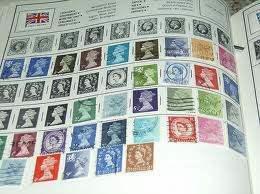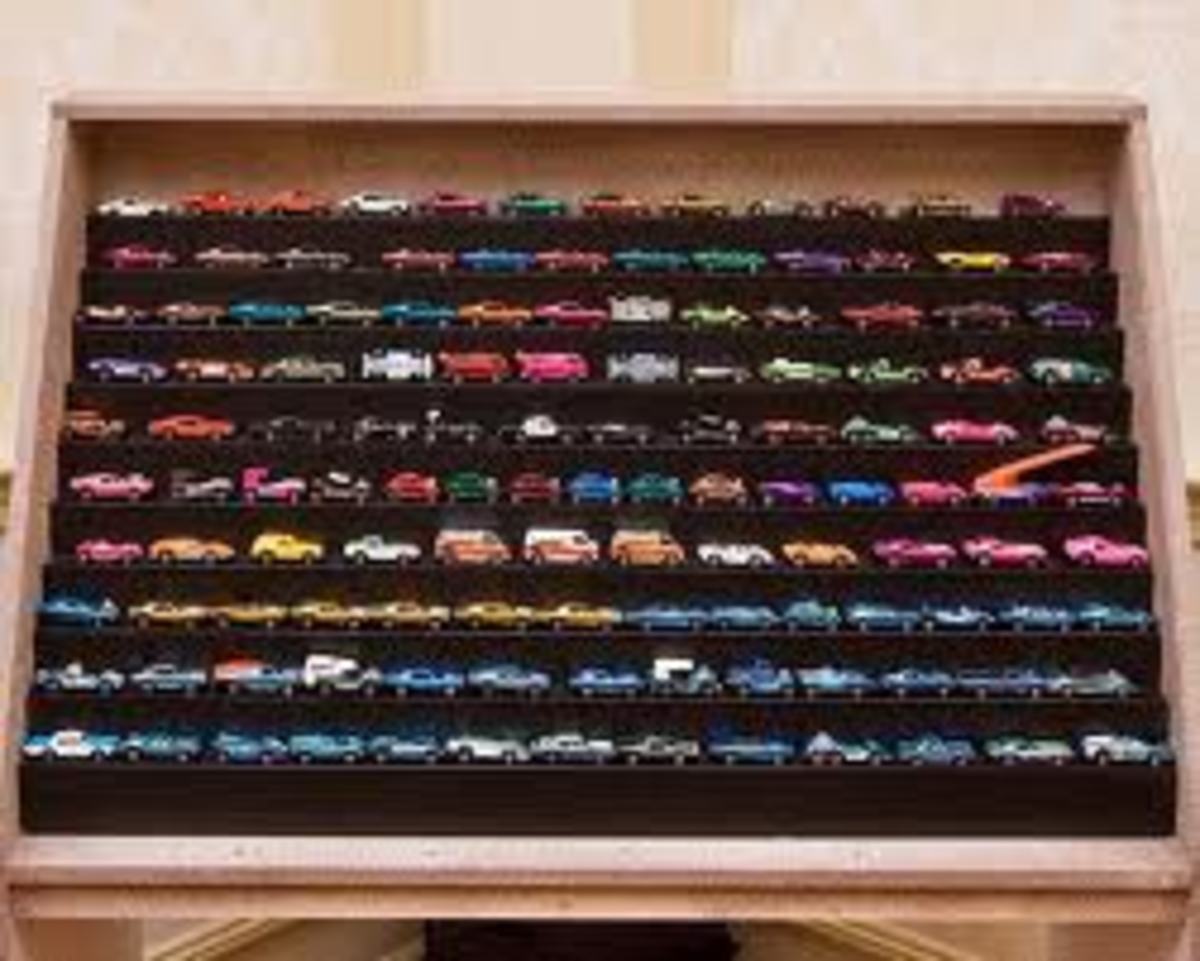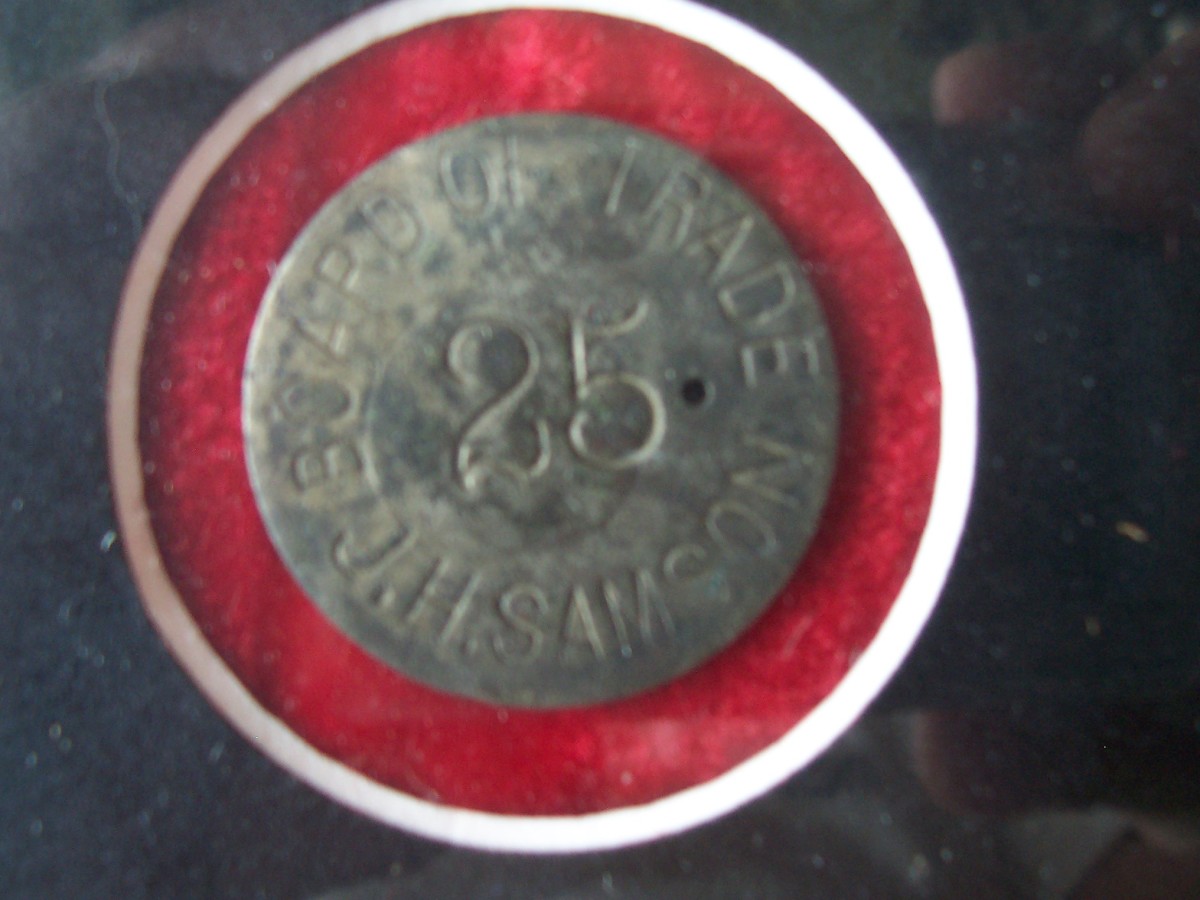What Is A Collector What Is A Hoarder
Having a collection of things is a good wholesome hobby but sometimes people get carried away and it takes over their entire home.
There are four different types of collectors: Collector, Extreme Collector, Pack Rat and Hoarder.
Collector-
Many people collect something and over the years collections change with what is hot or in style. There was a time when some people liked stamps but you seldom see or hear of anyone doing that anymore. It’s gone out of style for the most part. When an item is a hot commodity they are more difficult to find and the price goes up so collecting items less popular is actually best.
I collect books and jewelry. My book habit is verging on a problem but we won't talk about that.
What makes you a collector? There aren’t really any rules; you simply have a few similar things or you can have a large assortment. Some will trade up for more valuable items and keep only the choice specimen but then there are some who become Extreme Collectors.

Extreme Collector-
I saw a news story about a man who collects Simpsons memorabilia. His house was full, all the walls were covered, the shelves were loaded; not a space was bare. He also mentioned his wife left him; I imagine it was due to his obsession. He lives in a Simpsons museum.
A few years back McDonald’s gave out Beanie Babies with Happy Meals. They changed to a new one each week and middle age women would elbow past small children to get that week’s toy. Food was thrown in garbage cans just so they could complete their set. It’s a shame to think how many people could have been fed with the money and hamburgers wasted all in the name of a hobby.
Extreme Collectors don’t know when to quit. They always need one more item. They are not hoarders because they have no problem throwing away trash and they only collect one kind of thing such as Star Trek memorabilia.
Shopaholics fall under this heading. They are collecting clothes, shoes and whatever else it is they buy. Some buy items simply because they are on sale, never take the tags off or use them. (Some clinicians might argue with me on this one and say a shopaholic belongs in their own category but I see many similarities to Extreme Collectors.)
You see how some collections can get out of hand? How do you know when it’s gone too far?
If you can’t live comfortably among your possessions, your significant other is on the verge of leaving you or your children are ashamed to bring friends over, then it might be a problem and you may need to seek the help of a psychologist. If your credit cards are maxed out and your hobby has caused you financial ruin; you need help.
A few shelves displaying choice pieces is not a problem but some people go overboard and fill their home to the point there is no more room to move and they can hardly live among their treasures.
There are people who will spend their last dime on whatever their passion is, from Elvis to pop bottle lids. Ebay loves these people.
Pack Rat-
People who lived through the depression tend to be like this. They lived during a time of not having enough so they hang on to odd things, “just in case.” I might need that later: rubber bands, plastic bags, plastic food containers like margarine tubs, glass jars, odd bits and pieces of scraps left over from repair projects. You get the idea. To some of us these things just look like trash but to the Pack Rat they see a possible use.
The difference between these guys and hoarders is that they don’t keep trash that can’t be reused for something. To some of us an empty Cool Whip bowl may look like refuse but to a Pack Rat it has a potential to hold something in the future: food, nails or other small trinkets they are saving for “just in case.”
Pack Rats might have a garage, attic or shed full of handy items but their homes are still livable. They don’t have every counter top covered or piles on the floor. They tend to have their collections behind doors, in closets or somewhere else out of the way. Most are clean and the health department wouldn’t condemn them even if some of their family are frustrated and wish they would change.
Hoarders keep everything, even things that have no possible use such as used bandages and other disgusting things that are not only unusable but possibly a health hazard when saved.
The difference between Extreme Collectors and Pack Rats is that Pack Rats don't usually buy their things. These are keepsakes, memories and useful paraphernalia.
Some Pack Rats are very organized and know right where all of their treasures are. Others appear to be disorganized but they still know exactly where everything is and can go to the precise pile every time. And still others have no rhyme or reason to their chaos and keeping their bounty really does them no good because they have no idea where it is or that they even have it.
A lot of Americans have this problem; we just can’t let go of our past and our memories. If you don’t believe me just look at all the storage units around any town and all the storage sheds in people’s backyards. We are paying rent for buildings we don’t even live in. Thousands (Possibly millions, I don’t have exact figures.) of dollars are spent each year just storing our junk.

Hoarder-
Most of us have seen the hoarders on television with so much stuff they can’t move. They have piles of junk and trash lying around looking like the city dump instead of a home where a person could actually live.
Hoarding is Disposophobia. There is no reason for keeping things other than the simple fact these people can’t turn loose of anything regardless if it will be useful or of value later on.
People with disposophobia usually have had a major loss in their lives and they are afraid to let go. It is usually brought on by the death of a loved one, divorce, a fire or other disaster in which they’ve lost all or most of their belongings. It’s hard to let go of simple things, even trash because they feel pain much like when they lost that person or possessions.
Disposophobia people are typically depressed and may not realize it. They don’t have the energy or fortitude to clean up after themselves and soon the situation becomes a downhill snowball building in size and momentum until it becomes so overwhelming they can’t deal with it alone.
If you know someone who may suffer from Disposophobia please get help for them. They can’t heal alone. Shaming them or cleaning the mess up doesn’t fix the situation because eventually they will be right back in another pile unless they get counseling and medication.
I won’t share any of the Hoarder videos because they are quite gross but if you are interested you can find many online.

What causes over collecting and keeping?
It goes back to the beginning of time when we were all hunters and gatherers. We kept and stored things to protect us during time of want or famine. Dried food, extra furs and kindling put aside, kept us fed and warm during harsh winters.
We have evolved past needing so much extra belongings but just like our tailbone some things haven’t changed. It is like any other disorder or illness some of us get our wiring messed up in our brains and need help to overcome our idiosyncrasies.
If you are easily offended don’t watch this next video because it’s George Carlin. Need I say more? For the rest of you… enjoy.









